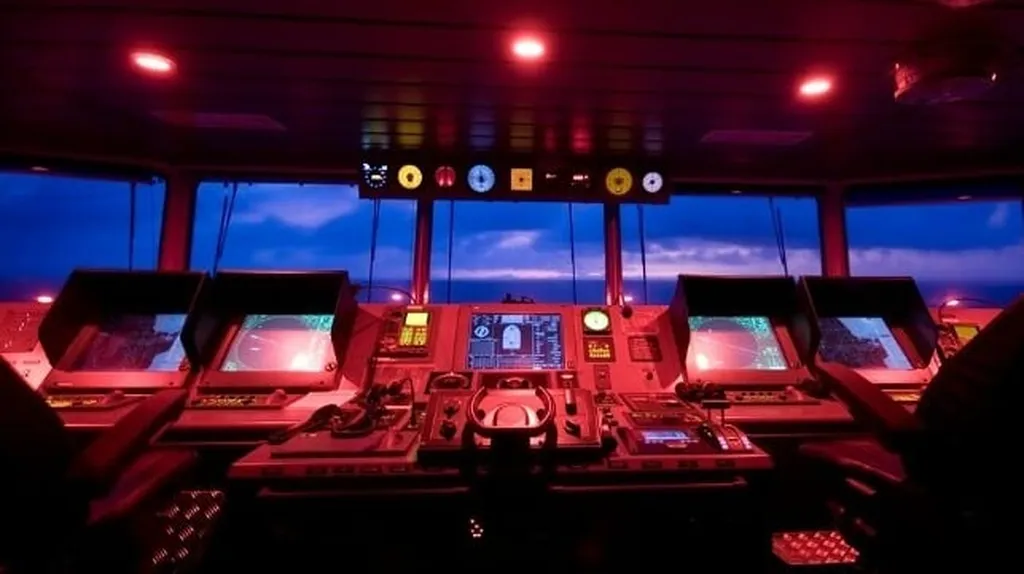Artificial intelligence (AI) is reshaping the maritime industry, bringing promises of efficiency and innovation. However, despite the hype around autonomous ships, the reality on the water remains firmly human-centric. The technological shift is undeniable, but the ultimate decision-makers on the deck are still people.
Carl Martin Faannessen, CEO of Noatun Maritime, captures the essence of this transition. “99% of all vessels being delivered this year will be instantly recognisable, and sailable, by a 60-year-old seafarer. We see the shape of things to come, but we are not holding our breath.” Faannessen’s perspective underscores a critical point: while autonomous vessels may work in specific geographies and niche applications, the vast majority of ships will continue to rely on crew for the foreseeable future. AI is poised to play a supporting role, assisting shoreside teams in providing better information to crews onboard. However, its ultimate impact remains uncertain.
Cybersecurity is an area of increasing concern, with risks such as GPS spoofing, hacking of engine control systems, and navigation vulnerabilities. Faannessen believes many of these risks can be managed with existing best practices and a continued focus on situational awareness onboard. The message from across the industry is consistent: AI is here to empower, not replace, the human element.
Captain Rajiv Singhal, managing director at MTM, emphasises this approach. “We believe in automation not replacing humans, instead empowering them to lead smarter ships with confidence.” This sentiment is echoed by Eva Rodriguez, Director HR Marine at Bernhard Schulte Shipmanagement. “As demands on our seafarers grow — whether from AI and autonomous vessel technologies, new fuels, increased data monitoring, digitalisation in general, or cybersecurity — the scope of their duties and the associated pressures are expanding significantly. We are actively addressing these new requirements by adapting and enhancing our training programmes accordingly.”
Rodriguez stresses the need to bolster human skills alongside technical ones. “We must place much greater emphasis on leadership skills, emotional intelligence, cognitive abilities, and resilience. Historically, the human factor was often overlooked, but today we are committed to strengthening it considerably. After all, mental health challenges cannot be resolved by AI alone.”
Wilhelmsen Ship Management is taking a tailored approach to AI training. Vice president for marine personnel Wiebke Schuett says, “There’s no one-size-fits-all approach to AI training, as every vessel operates with different levels of technology. We are progressively training our crew based on the specific systems onboard, many of which already include AI features. Cybersecurity remains a key focus — it’s mandatory for all seafarers and regularly updated. We’ve also developed a robust micro-learning platform to deliver timely and relevant training content that keeps our crew up to date with emerging technologies.”
At Anglo-Eastern, the world’s largest shipmanager, the emphasis is on integrating AI to enhance operational performance without removing the human element. Chief commercial officer Niraj Nanda outlines the approach: “Our focus with AI is to better process information for faster and accurate decision-making, reducing the burden on the ship’s crew and improving their wellbeing. We are working with our teams at sea and ashore to integrate AI in predictive maintenance, voyage optimisation, and assisting with regulatory compliance.”
Nanda details the company’s technology ecosystem. “Our Asset Management & Technical Support Division uses high-frequency telemetry, predictive maintenance algorithms, and AI-assisted dashboards to monitor over 400 data points per vessel. These insights power condition-based maintenance, reduce downtime, and extend asset life, transforming ship management from a more reactive service to proactive, data-driven operations.”
Anglo-Eastern has also launched its Sustainability and Performance Services, a digital solution to help charterers and commercial operators navigate maritime decarbonisation while optimising vessel performance. Nanda adds, “From 2023 to 2025, the underlying systems monitored over 800 vessels across nearly 46,000 voyages, with over 4,300 crewmembers trained for vessel optimisation, and over 739,000 performance reports analysed, achieving a reduction of over 700,000 tons in CO₂ emissions and over 225,000 tons in fuel usage. This has translated into cost savings of approximately $135m.”
Caravel Group, and subsidiary Fleet Management, are exploring AI’s potential to streamline tasks and improve safety. Group COO Angad Banga says, “We do not believe that technology will replace jobs, however talent and time can be redistributed as technology alleviates efforts spent on more menial tasks such as reporting. It also has great potential to strengthen protections for our people and improve safe operations.”
For example, Banga discusses recent investments in AI-assisted tools

